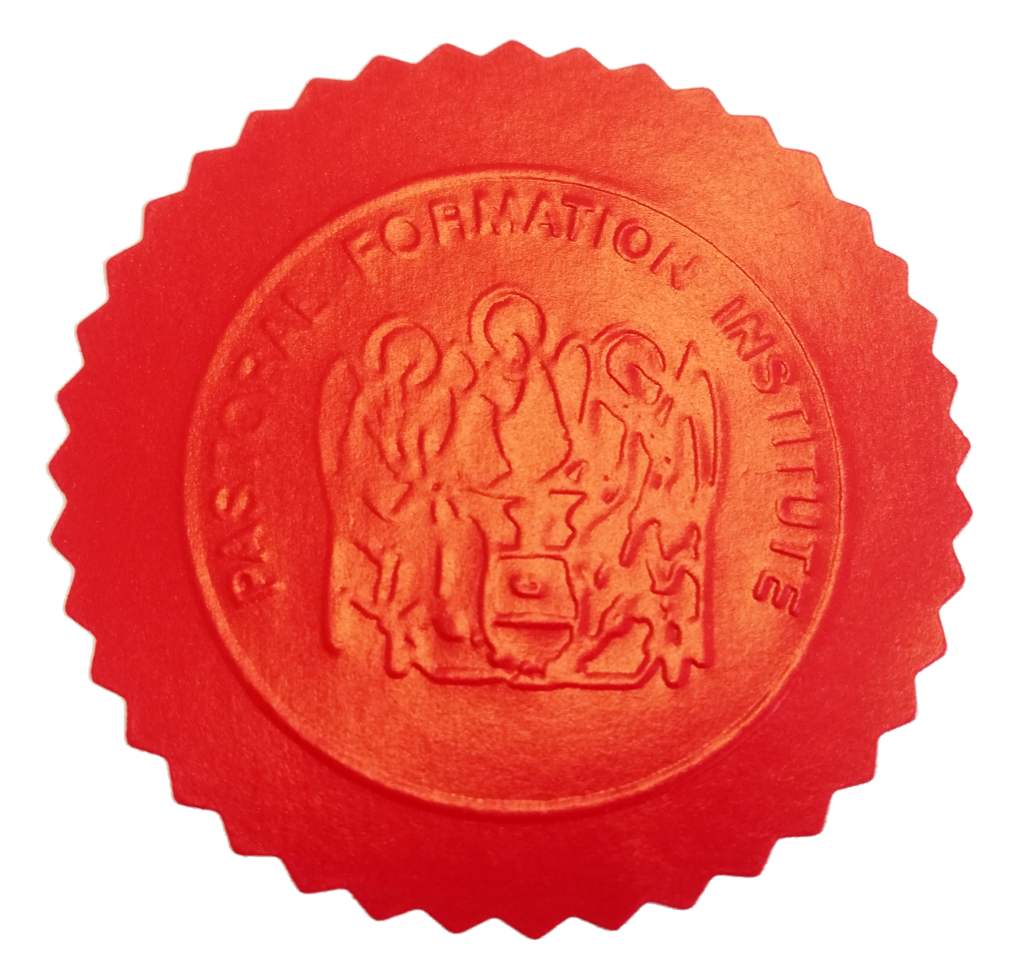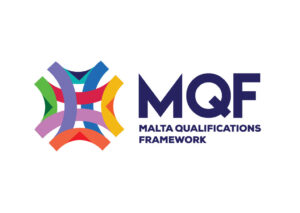Our Certification
Three Modes of Certificate

Certificate of Attendance
Students receive a certificate of attendance if they attend at least 80% of each module

Certificate of Participation
Students receive a certificate of participation:
- If they attend at least 80% of each module
- & successfully complete simple assessment/s.

Certificate of Achievement
Students receives a certificate of achievement:
- If they attend at least 80% of each module
- & successfully complete all course assessment/s
Digital Certification
The Institute issues digital certificates that are sent by email. Should you wish to have a hard copy click Request Hard Copy button below. Diploma and degree certificates are issued during a graduation ceremony.
Our Seal
As from its foundation, the PFI board members chose the icon of the three angels of Abraham as the emblem for the Institute. This icon is represented on the official seal of the Institute which authenticates the Institute’s certificates.
When Abraham saw the three angels he prayed: “My Lord, I beg you, if I find favour in you – kindly do not pass your servant by” (Gen 18, 3). This prayer by Abraham is related to the mission of the Pastoral Formation Institute. Our dreams, our reflections and our actions are not simply generated from ourselves but are God’s gratuitous and splendid gift. While we pray, we enter dimly the conversation within Godself. The Lord God also prays to us and invites us to rest and to find nourishment in God’s shadow. We are invited to pause in our ways, rest and contemplate the goodness of God. The passage of these three persons appearing to Abraham indicates the coming of God in his life; the icon is a window onto the Triune God’s closeness to us and to the whole of humanity. The upper part of the icon is figurative; the lower part is abstract.
Indeed, God is transcendent, indefinable, ineffable, and yet God reveals Godself and enters into intimacy with the human person.

In 2010, the Institute commissioned John Martin Borg to write an icon of the Institute’s emblem. It is interesting to note how the figures are placed in this icon. The central figure is clothed in blue (the colour of humanity); the other two figures are wearing golden green (which represents hope) and golden red (which represents fire, and the splendour of God) respectively.
The artistic play with the gold colour in the bottom part of the icon is integrated in the clothing of the persons and reveals that God is infinite and perfect.
The red band also holds an important meaning: encircling the three figures, bringing them together, it reveals that one God lives in these three unique persons. The figurative part shows the central angel gazing at, approaching, and entering in conversation with the person contemplating the icon; he is facing the contemplator and holding a staff: he is the fellow-traveller, the Incarnate Son of God. The other angels are looking across the icon and their faces are almost entirely covered. It is through Christ, in the Holy Spirit, that the Lord God touches our lives. Interestingly the blue colour also penetrates through the other colours showing that the humanity of Christ, the Incarnate Son, is one with the Father and the Spirit.
This icon was written at a particular time at the end of a year and the beginning of another. The iconographer, John Martin Borg, chose this particular time – he commenced his work at the end of the year 2010 and completed his work at the beginning of the new year 2011 – in order to manifest, through the icon, that Christ is the Alpha and Omega, the beginning and the end, the One who comes forth from the Father in the Spirit and, in the Spirit, leads us to the Father.
Malta Qualifications Framework (MQF)
The Malta Qualifications Framework (MQF) assists in making the Maltese qualifications system easier to understand and review, and more transparent at a national and international level. The Malta Qualifications Framework is also a referencing tool that helps to describe and compare both national and foreign qualifications to promote quality, transparency and mobility of qualifications in all types of education. It is mainly referenced to the European Qualifications Framework (EQF) as well as to other non-European qualifications frameworks.
For more information about the MQF, its levels and accredited courses, you can visit their website.
Archdiocese of Malta Formation Framework (AFF)
The Archdiocese of Malta`s Formation Framework (AFF) was designed as part of the PFI`s formation project for the Church in Malta. The aim of the PFI`s formation is to equip pastoral workers with the necessary tools for their ministerial role within the community.
This formation is spread over a spectrum of levels, ranging from basic to specialised levels. Thus, the framework is designed to serve as a referencing system, through which pastoral workers can better understand their formation progression.
This formation framework is a tool to ensure that a level of excellence is maintained in the content and methodology of the all courses provided by the Diocese. Furthermore, it is also a means of communication of the level of understanding of biblical, theological, spiritual, moral and pastoral work, achieved by participants by the end of their learning process.
Grading Scheme
| Descriptor | Marking Range | Grade |
|---|---|---|
| Work of exceptional quality. Exceptional performance showing a comprehensive understanding and application of the subject matter. Evidence of extensive additional reading/research/work. | 95%- 100% | A+ |
| Work of excellent quality. Superior performance showing a comprehensive understanding of the subject matter. Evidence of considerable additional reading/research/work. | 80%- 94% | A |
| Work of very good quality. Performance is typified by a very good working knowledge of subject matter. Evidence of a fair amount of reading/research/work. | 75%- 79% | B+ |
| Work of good quality. Above average performance, with a working knowledge of subject matter. Evidence of some reading/research/work. | 70%- 74% | B |
| Work of average quality. Considerable but incomplete understanding of the matter. Evidence of little reading/research/work. | 65%- 69% | C+ |
| Work of fair quality. Basic understanding of the subject matter. No evidence of additional reading/research/work. | 55%- 64% | C |
| Work of rather low quality. Minimal understanding of the subject matter, with no evidence of additional reading/research/work. | 50%- 54% | D+ |
| Marginal Pass. Marginal performance, barely sufficient preparation for subsequent courses in the same area. | 45%- 49% | D |
| Unsatisfactory, failing work in any study-unit. | 0%- 44% | F |



